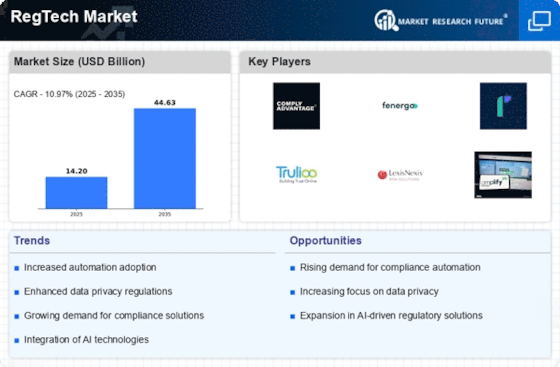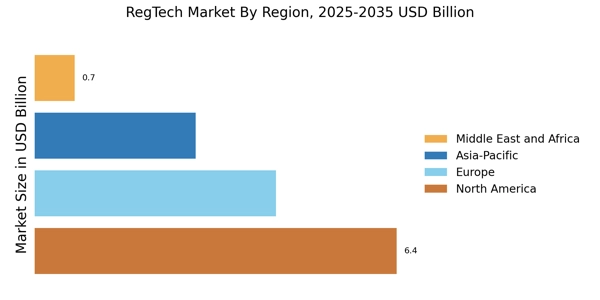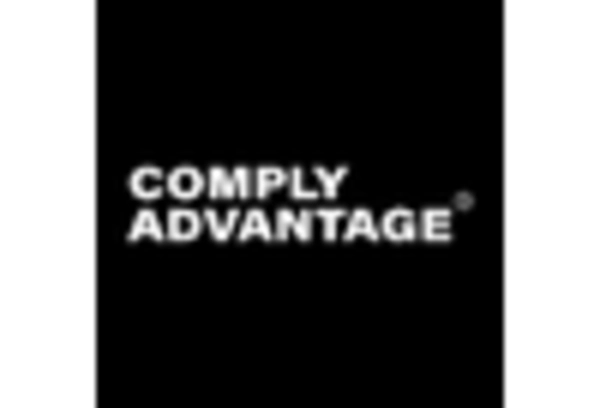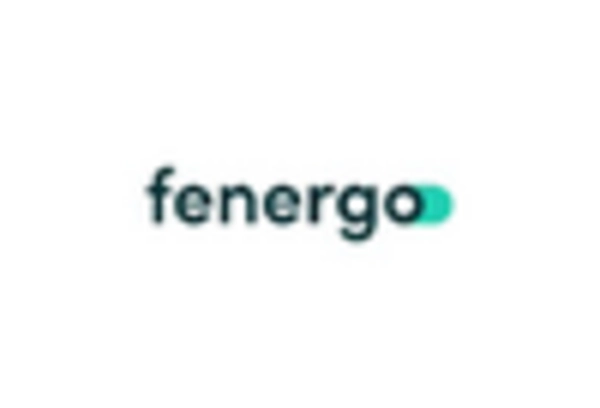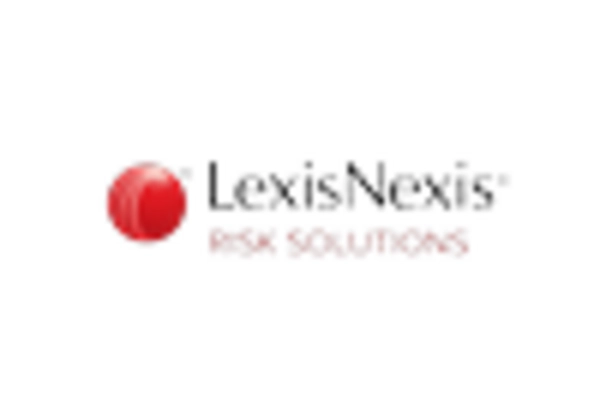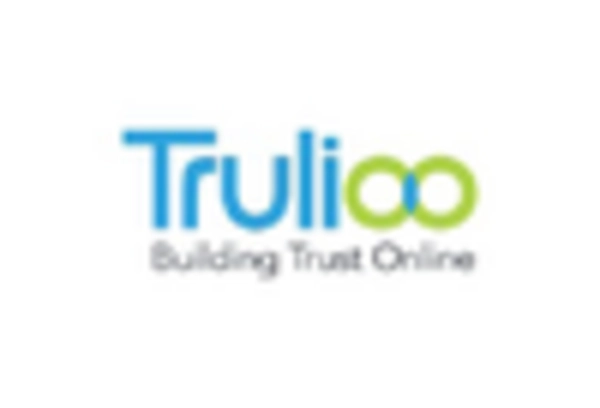Increased Focus on Cybersecurity
The RegTech Market is witnessing a growing emphasis on cybersecurity as organizations recognize the importance of protecting sensitive data. With the rise of digital transactions and online services, the risk of cyber threats has escalated, prompting firms to invest in robust cybersecurity measures. Regulatory bodies are also mandating stricter cybersecurity protocols, further driving the demand for RegTech solutions that incorporate advanced security features. According to industry reports, cybersecurity spending is projected to exceed hundreds of billions of dollars in the coming years. This focus on cybersecurity not only enhances compliance but also builds trust with customers, making it a critical driver for the RegTech Market.
Globalization of Financial Services
The RegTech Market is being shaped by the globalization of financial services, which necessitates compliance with diverse regulatory frameworks across different jurisdictions. As companies expand their operations internationally, they face the challenge of navigating complex regulatory landscapes. This complexity drives the demand for RegTech solutions that can provide comprehensive compliance support across multiple regions. Firms are increasingly seeking technology that can adapt to varying regulatory requirements, thereby reducing the burden of compliance. The potential for growth in the RegTech Market is substantial, as organizations look for ways to streamline their compliance processes in an increasingly interconnected world.
Shift Towards Digital Transformation
The RegTech Market is experiencing a paradigm shift as organizations embrace digital transformation initiatives. The transition from traditional compliance methods to digital solutions is reshaping how firms approach regulatory adherence. This shift is driven by the need for efficiency, cost reduction, and improved accuracy in compliance processes. As organizations adopt cloud-based solutions and automation technologies, the demand for RegTech services is expected to surge. Recent surveys indicate that a significant percentage of firms are prioritizing digital transformation in their compliance strategies. This trend suggests a promising outlook for the RegTech Market, as companies seek to leverage technology to enhance their compliance capabilities.
Technological Advancements in Data Analytics
The RegTech Market is significantly influenced by advancements in data analytics technologies. The ability to process vast amounts of data in real-time allows organizations to enhance their compliance efforts and risk management strategies. Machine learning and artificial intelligence are becoming integral to RegTech solutions, enabling firms to identify patterns and anomalies that may indicate compliance issues. As organizations increasingly rely on data-driven decision-making, the demand for sophisticated analytics tools is expected to rise. Recent estimates suggest that the global market for data analytics in compliance could reach several billion dollars by 2026. This trend indicates a robust growth trajectory for the RegTech Market, as firms seek to leverage technology to improve their compliance frameworks.
Regulatory Pressure and Compliance Requirements
The RegTech Market is experiencing heightened regulatory pressure as governments and regulatory bodies impose stricter compliance requirements across various sectors. This trend is particularly evident in the financial services sector, where compliance costs have surged, prompting organizations to seek innovative solutions. According to recent data, compliance costs can account for up to 10% of a financial institution's operating budget. As regulations evolve, firms are increasingly turning to RegTech solutions to streamline compliance processes, reduce costs, and mitigate risks associated with non-compliance. This growing demand for efficient compliance solutions is likely to drive the expansion of the RegTech Market, as organizations prioritize regulatory adherence to avoid hefty fines and reputational damage.


